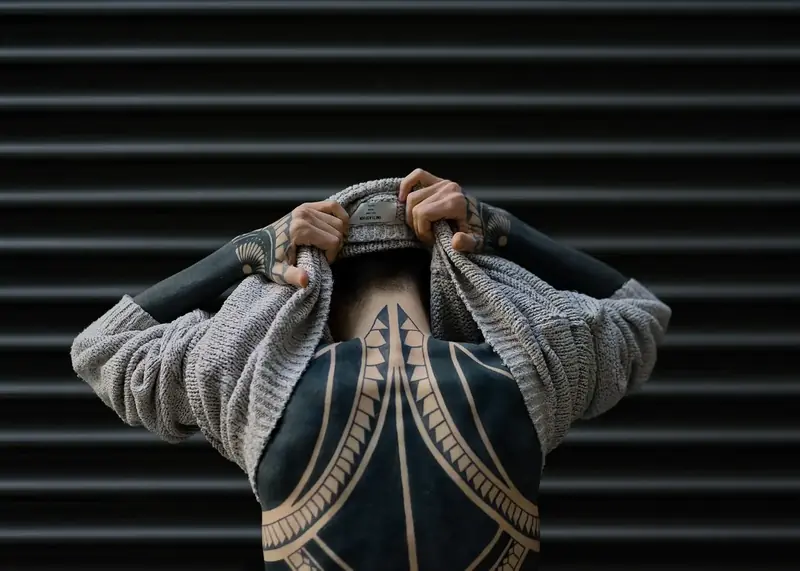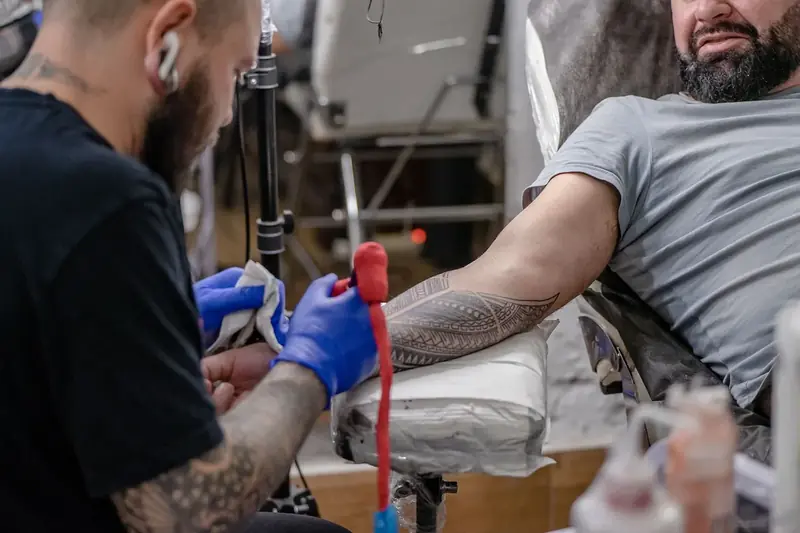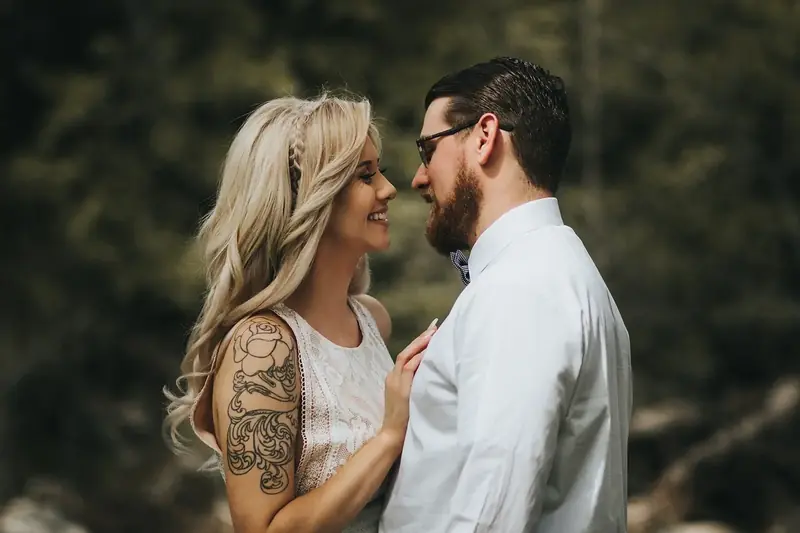
A team of researchers from the University of the Federal Armed Forces in Hamburg has concluded that people over 50 tend to have the most negative attitudes toward “permanent” body art. They are particularly irritated by extreme body art or tattoos that cover large areas of the body. However, even small tattoos often annoy the older generation.
The researchers believe that this rejection of tattoos may be linked to traditional negative stereotypes.

What Did the Scientists Discover?
The team involved 487 adult volunteers in their study. Each participant was asked to evaluate the appearance of two models with varying degrees of coverage from temporary tattoos. The options included: a body completely free of tattoos, light coverage, moderate coverage, heavy coverage, extreme coverage on the body, and extreme coverage on the face. The designs were inspired by natural, geometric, and animal motifs.
Each image was rated on a scale of 1 to 7.
According to the results, the highest scores were given to the options without tattoos, while the lowest were for those with facial tattoos. Further analysis revealed that participants with tattoos, as well as tattoo artists, were generally more favorable toward body art.
Volunteers under 50 found extreme designs quite appealing, in contrast to their older counterparts.
In this context, experts defined extreme designs as those covering large areas of the legs or arms, as well as those placed on other prominent body parts, such as the chest.
It’s worth noting that facial tattoos received the least positive feedback from volunteers, as reported by the Daily Mail.

In an article published in the journal PLOS ONE, the researchers wrote: “This age-related difference can be explained by numerous factors. Young people, on average, spend more time on social media and are therefore more frequently exposed to tattoos.”
“Additionally, many public figures who often serve as role models for young people are seen with tattoos in movies or advertisements, or they have their own tattoos,” the researchers added.
According to the scientists, previous studies have repeatedly “demonstrated the presence of negative stereotypes and attitudes toward tattoos among older individuals.”
The team concluded: “These results confirm that tattoos influence aesthetic perception, which largely depends on experiences and social norms related to age.”
What Do Other Scientists Say About Tattoos?
Dr. Steven Kreb, a linguistics expert at the University of Portsmouth, surveyed 1,000 residents of the UK who claimed to regret their tattoos.
According to the study, about 18 percent of Britons aged 18 and older regret having marred their bodies with tattoos.
31.34 percent of men and 24.33 percent of women surveyed have negative feelings about having someone else’s name tattooed on their bodies. Meanwhile, 15.64 percent of women and 9.54 percent of men feel judged for their tattoos.

About a third of participants (29.5 percent) admitted they had considered the possibility of tattoo removal but had not yet done so, while around a quarter (24.50 percent) had already removed tattoos.
Approximately a third of volunteers (28.30 percent) expressed a preference for covering up their tattoos rather than removing them. Only 17.7 percent felt it was necessary to keep their tattoos and not hide them from others.
